An Infallible System of Roulette
The first time I died might’ve been back in ‘65 on a community farm up in Forest River, North Dakota. Although there was an earlier summer where I’d tiptoed out to a Lee Street beach sandbar and gotten stranded by Lake Michigan’s tide, or maybe wind swells, so that the water rose up over my head on the way back to shore. I was nine or ten at the time and still hadn’t learned to swim. Adults were all around and I remember floundering for the bottom but being too embarrassed, even as I went under, to cry for help. So I learned the doggie paddle. Or drowned. Or both. Probably both. It’s hard to say for sure. Things don’t change as much as you’d imagine. Even in Forest River Community Farm’s chicken barn mishap, where my death was a lot more obvious, not much changed.
As Hudderites, they wouldn’t have carried any kind of liability insurance. But they weren’t poor. They had over a thousand acres of prime farmland, and huge pork and poultry operations. Their chicken quotas alone had to be worth a fortune. And like all rural religious communes, child labor was integral to their business model. Not in an abusive or exploitative way though. Hard work and a frugal lifestyle were how they believed God wanted them to live. They worked their children in the fields and barns and processing plants, not to sacrifice them, but because they loved them and wanted them to grow up faithful and happy, as they themselves had.
My parents weren’t what you’d call litigious people. So, unless their grief changed them in some fundamental way, they wouldn’t have taken Forest River Community Farm to court, to seek damages or revenge or closure or whatever through that course. Even though this would’ve been a total no-brainer. And no doubt they were approached by legal professionals specializing in that sort of thing, lawyers eager to work on contingency.
I have a pretty good feeling for how hard my death must’ve been on them from how hard the death of my son has been on me. Even though I know he’s still living down another thread of existence or in some alternate universe or along some other quantum path (or however you want to think of it) so that nothing much has changed for him just like nothing much changed for me all the times I’ve died, I still feel this huge sense of loss and failure. It would be nice if, just like you can’t die in any reality, neither could your children.
Next to lumberjacking and small-boat fishing, farming is the most dangerous occupation. The hours are long. The machinery is heavy and much jury-rigged. And training is minimal. You learn by doing. Forest River Community Farm had provided an unsafe work environment for a twelve-year-old city-slicker from Chicago’s north side. So maybe there are eventualities in which my parents saw there’s no benevolent, all-knowing god character watching over and meddling in their lives, who cares what they believe. Maybe they even saw (just like at the quantum level, at the most fundamental level of existence) that actions are not chosen, decisions are not made, but rather every possible course is always taken. But mostly not. Probably mostly they did not sue Forest River Community Farm, but continued to trust that God knew what he was doing and had good reasons for doing it, and looked forward even more to the day that they would all get together and it would be explained to them.
Farm elders had a lot of respect for my dad (which was why I was there in the first place) and so probably felt awful that his oldest son (oldest sons having a kind of religious significance in the Old Testament) had gotten killed in such a terrible way in their service. It was just supposed to be a rural learning-slash-growth-slash-summer vacation experience for a kid from the suburbs.
And who slips on a bottle cap while strolling along on a blind date and falls in front of a bus? Or, more accurately, who chooses a life in which his son has done this? Was it guilt for having abandoned my own parents back there in Forest River Community Farm’s main chicken barn that I chose this course? If so, then it was not a willing decision. I can live with guilt. I’d have chosen a way in which he only twisted his ankle a little, or in which the bus was late, or in which he never met the girl that so distracted him on that fateful walk. Probably she would too. Probably she did.
Have you ever wondered why people who play Russian roulette find it therapeutic? I’m not talking about the deranged or despondent. I’m talking about well-balanced, productive individuals with strong family and community ties, happy people for whom surviving a one in six or seven shot enforces a more appreciative outlook on life.
Before the chicken barn incident I’d wanted to be a policeman or a fireman. After, I could no longer imagine being either of these things and decided to become a scientist. Which of course proves nothing. Science cannot prove the existence of other experiential or existential paths. It cannot really even determine much about this one, the one in which I did not get pinched in half like a fishing worm between Forest River Community Farm’s chicken barn’s elevating platform and fifth floor framework, but went on to study physics at MIT, and also the one in which my son was squashed between the curb and right front tire of a Vancouver city bus, his entrails bursting and spilling out onto rain-slickened pavement while his date looked on in horror.
See if this makes sense. There are two kinds of people: me (or in your case, you), and everyone else. And though I don’t seriously doubt that you exist and experience things much (if not exactly) as I do, I cannot know it. And though I might care very much about you and take great pains, and even risk my own existence, to help or hurt you in some way, ultimately I act only on my own perceptions and feelings. You are just a character in my narrative. So in effect, I am all that exists. Whatever I am. So if I die, then nothing exists. That is the essential difference between us.
And it’s the same with realities. There are two kinds: this one, and all the others. This may not be as apparent to you as the existence of other people, so perhaps the metaphor falls short for you. But for one who’s spent the last decade watching leptons dance, it does not. Superimposed atomic particles combine in every possible way, simultaneously. In other words, they exist in every possible reality; only by observing them do we constrain them to one. We exist in every possible reality too; only consciousness constrains us to one. I know this is pretty ironic and trippy and metaphysical and boring, and I apologize. All I’m trying to do is show how realities are like people, that there’s a connection between this one, the one we’re all pretty sure exists in some form or another, and all the others, which we’re not sure of at all, and probably haven’t even considered.
I was invited to join the Scientific Advisory Committee of Waterloo, Ontario’s Perimeter Institute for Theoretical Physics in 2002, after my thesis on inevitability and super-improbability won, of all things, The Swedish Royal Academy of Science’s prestigious Rolf Schock Prize in Logic and Philosophy. It was the first time ever the Schock had been awarded out of department, and pretty hard to believe in a lot of other ways too. Like a dream really.
Like the dream in which my son did not drop out of Simon Fraser’s post graduate Philosophy program to become a web designer and slip on a bottle cap and get crushed by a bus, but rather went on to receive a doctorate, and later tenure, for his research on the deterministic influences of language on cognition and the integration and assimilation of small-scale reality models. The dream is pretty credible. More like a memory really. Usually I’m attending a lecture in which he’s explaining his theories to a large audience of students and visiting academics like myself, and even though I don’t understand some of the terminologies and concepts, I sense that he does, that others do, and that they’re valid and even somehow not unrelated to my own work. Because I’m in a wheelchair, I sit either in the very front or very back, depending on the logistics of the lecture hall. I prefer the front, where occasionally he will look down at me and smile in a way that strikes me as both proud and self-conscious at the same time. Although he’s never complained, I’m pretty sure he’d prefer I stay back, not because he’s ashamed or embarrassed or uncomfortable with me or my disability, but just because that’s the way it is between children and their parents. I do not resent my legless condition. An amputee is not a cripple. I lead a full and active life. Then I wake up.
What do you think the chances of winning at Russian roulette twenty times in a row would be? Assume six cylinders, one round, and a good hard well-oiled spin with the muzzle pointed straight up or down so gravity cannot impact the randomness of the outcome. If played only once, five of six will survive. But if played twenty times, even over the course of decades, by the laws of conventional probability, less than three in a hundred will live to play a twenty-first time. Now consider all the chances you take continuously day in and day out: jaywalking or even crossing at the light; driving a car; popping a Tylenol; eating a hamburger; touching the metal trim of an electrical appliance; owning a gas fireplace; stepping into an elevator; getting a mosquito bite; shoveling your driveway; having sex; walking without watching where you step; breathing; etc. etc. etc. Ignore evolution’s improbable successes. Even ignore the race for conception you qualified for and then won against 50,000,000 others. If there is but one reality, what sort of odds do you think you’ve had to overcome to now exist in it?
Academia is show business. That’s why it accomplishes so little. The Perimeter Institute today is little more than a theater for performing arts. I stand by the window of my fifth floor corner office staring out over Silver Lake. When I hear footsteps, I stroke my beard in deep contemplation. Or I write furiously on my antique blackboard. There’s momentousness in the clack and squeak of chalk against slate that’s missing in the feeble chirps of felt-tip markers on whiteboards or the plastic clicking of a keyboard. Though some days I sit. The days I have no legs.
It was an open lift stabilized by corner poles and controlled by a system of pulleys and cables. My co-workers had already loaded it with all the shit-encrusted wire egg baskets we’d need for the top floor and begun their ascent. I don’t remember what caused me to lag behind, but by the time I reached them the platform was already up to my shoulders. Figuring I’d be able to climb aboard easily enough before it reached the next floor, I grabbed on. By about half way up I was a lot less confident. I’d managed to pull myself up to almost waist level, to where I was leaning on my forearms and elbows, but my legs kept swinging under the platform which prevented me from moving forward and making further progress. My friend Dean, who’d come up with me on the train from Chicago, was laughing at my predicament. Joe, a Hudderite lad and the oldest of us, was shouting, and his two sisters, Hanna and Rebecca, were screaming. Somewhere above the fourth floor ceiling’s hanging bulbs I gave up and resigned myself to failure. The support beams of the approaching fifth floor were close enough to bump my head on and I remember thinking that some sort of shutoff sensor would just have to come into play or the motor would conk out. I remember wondering what all the fuss was about too, and then remembering that these farm kids had probably never ridden in a real elevator and so didn’t know you could let the doors close right on you, that these things had all kinds of safety features.
Then we’d stopped and Joe was yelling at me, almost crying. Even after I explained to him that everything was okay and that I’d never been in any real danger, he kept yelling. “You greenhorn! That’s a five-horse motor! Lift two tons easy. Chop you clean in two you greenhorn.” Just as there are relationships between subatomic particles, there are relationships between people. The best way to describe them might be to say that they behave as though they’re all facets of a single entity. So for the rest of the day Dean called me a greenhorn.
Many realities coexist at any given moment. But few are chosen. Standing at one of Casino Rama’s six roulette tables, I prepare to bet my entire life’s savings on a single spin of the wheel. And I mean everything. Not only have I emptied my bank accounts (including taking a huge tax bite for withdrawing my RRSP funds) and sold my entire investment portfolio to the dismay of my financial planner, I’ve borrowed against my pension, refinanced my home, sold my Mercedes to a used car dealer, my furniture at an estate auction and my knickknacks at a lawn sale. Because careers in theoretical physics are more prestigious than lucrative and rapid divestment or cashing in such as I have just described is expensive and financially unwise, this comes to only a little over 880,000 dollars. Of course I’ve had to obtain special permission from the casino to place such a bet. Table limits even in the VIP lounge are only 5000 dollars. But such requests are not as uncommon as you might think in the eccentricities of casino lore. There’s a City News crew present. A heavily made up Chinese-Canadian reporter in a pale silk pantsuit asks me if I’m crazy or something, and laughs. Then she asks me how I plan to wager.
That’s the thing about reality: you have to choose. When the elevator locked into its fifth floor dock, the pressure on my midriff became unbearable—but then, strangely irrelevant. Because realities are simultaneous and interconnected, I’m still able to remember. For example, I remember Dean’s vomiting pink day-old pastry into and all down the sides of the stacked wire baskets. I even remember my funeral a little. Only it’s not my funeral. It’s for some dumb city kid, some greenhorn who hadn’t had the sense to not try to climb aboard a moving lift in the big chicken barn. It’s been the talk of the farm. Being the youngest of the twelve Mendel children has lent me a certain celebrity among my peers. See, Joe’s our oldest. And he was in charge. He was there with two of our sisters. Father has given him a vicious, prolonged, cathartic strapping during which neither of them made a sound. I’m so glad it wasn’t me that got cut in two that I feel a little unchristian and guilty. The dead boy’s father, a preacher, appears to have aged since his Wednesday sermon. He stands before us with his eyes closed. Several times he seems about to speak, but then gives up. Finally he just bangs the pulpit with his fist and retakes his seat. I feel an inexplicable connectedness to and sadness for him.
The largest denomination casino chips are the purple 500s. Obviously I can’t be expected to stack 1,760 of them, so the casino has produced a special gold chip for the occasion. “Place your bets,” says the pretty dealer, holding out an arm to the table as though she were a conductor helping me to board a train.
Although quantum physics has helped refine my working model or construct and I continue to experiment, I discovered the true nature of reality that day on the elevator. Along another path Joe tries to haul me up onto the platform by my t-shirt. It tears when my legs become wedged just above my knees. The damage is worse than it feels, maybe because I’m in shock. Double amputation is the only medical course. My son stops to kiss the girl instead of stepping on the bottle cap. Later they marry, and she has my grandchildren. Dean still throws up all over the egg baskets. Later, when I tease him about it, he insists it had nothing to do with me. That there’d been almost an entire box of pink coconut logs with hardly any mold on them from Eddie’s Bakery which he’d eaten instead of feeding to the chickens.
* * *
The second between my abandoning hope just above the fourth floor’s hanging lights and my lying safe and sound on the fifth floor with Joe scolding me, if it ever happened, is lost. I have no memory of it. As I said, my last thoughts prior to it were in preparation for embarrassment and a manageable compression of my midsection such as perhaps being squeezed in a leg-scissors by an adversary while play wrestling. This time Dean did not throw up, although he stopped laughing. I wonder if that’s how my son remembers falling under the bus: as a close call from which he got up and went on with his life. I wonder if when my wife shot herself in the mouth with my Colt .22 caliber Target-Master revolver, she chose a path in which the gun misfired, or only knocked out a few teeth, or tore away a bit of her cheek. There were no other chambered rounds. So I wonder if she’d given it a spin first. Though it hardly matters. Obviously I chose for her to die too. But I still feel bad about it and hope there’s at least one course in which she didn’t.
The day after my elevator incident, Dean fell off a tractor he was driving. The rest of us were riding behind on a heavy hay wagon loaded with boxes of moldy treats from Eddie’s Bakery when he turned to ask which pedal was the brake, and lost control. When the tractor veered off the road, Dean tipped backwards off the seat. He missed the hitch with his head and fell between a pair of turning 500-pound tires. Driverless, the tractor continued to chug down into and then along the shallow ravine until it hit a tree and stalled. All four wagon tires missed him too. I chose to keep him around so I could call him a greenhorn.
* * *
Joe had all his teeth out at twenty. Said he hated the dentist and just wanted to be shed of them. Then he got killed in a corn silo. On the days I have no legs my son emails me and we debate some philosophical assertion until I win. I know he’s only humoring me. Sometimes my wife meets me for lunch in the Bon Appetit, or off campus if neither of us feels like cafeteria food. I know she’s having an affair. The days I have my legs are lonelier. But easier too in a way. Even the days my office window’s view is obstructed by a heavy grate—and when I try to find someone in maintenance who can remove it, the door to my office is stuck—and if I pound on it, my secretary comes and gives me an injection. Then I go to sleep. It’s hard to decide. No reality is perfect.
On May 9, 1867, the great Fyodor Dostoevsky wrote to his wife, Maria Dmitrievna, regarding his study of roulette: “I was the winner when happiness smiled at me…” So he knew. Truth is defined by what you believe, and not the other way around. I learned this in the chicken barn. Matter’s quanta only confirmed it. It’s only consciousness—the choosing—that’s hard. For me, literature prevails over happiness. So Dostoevsky was ruined by the game. Everyone is surprised when I reach out to place my gold chip on the green double-zero. I can see it on the faces of the pit bosses. They’d assumed I’d play an outside bet, such as red or black, or even or odd. That is how others have always done it. My feet itch. This happens when I’ve been standing on my prosthetic legs for too long, especially if they are not perfectly fitted to my stumps. I wonder briefly why I have not sold them, along with my electric scooter. The more at stake, the better. Then I realize that I have no scooter or prosthetics. There is probably lycra in my socks’ material. That is why my feet itch. The casino is prepared to lose 880,000 dollars, but 30,000,000 is another story. Forest River Community Farm is probably worth that now. The dealer’s arm is stayed by a manager. There is some dissention. They ask if I wouldn’t feel safer playing shorter odds. They tell me that I have only a 1 in 38 chance this way. I tell them that I have some statistical training and that I’ve even managed to unearth an interesting thing or two about improbabilities. I try to explain that whatever happens is completely up to them, that we can all be happy. They confer some more. Phone calls are made. Then they smile and shake my hand and wish me luck for the camera. The dealer gives the wheel a mighty turn.
As the ball slows, their expressions are grim. A few disguise their trepidation as aplomb and refuse to look. They will probably lose in their realities. You are probably wondering what will happen now too. Does the ball drop into the double-zero to accompanying bedlam, or some other slot to dead silence. Do I choose my family over my legs?—this life over another? Maybe you can see now that only you can decide. Just as I will soon have to. That this is the difference between us. The hard fact of the matter.
The End
Born on the cusp of the first hydrogen bomb’s test detonation, Chris Miller’s formal education includes a university degree and a college diploma. His legitimate professions (of longer than a day, in no particular order) include stock boy, paper boy, pot washer, baker’s helper, geriatric orderly, union rep, painter (of apartments, not canvases), farm hand, technical writer, baby-sitter, software developer, line cook, dish washer and restaurateur. He has two sons, one granddaughter, and has always wanted to be a writer. Chris’s story, Michelangelo’s Chisel, appeared in RSF #2 in July 2010. His stories have also been published in Cosmos, The Barcelona Review, Nossa Morte, and elsewhere.







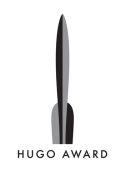
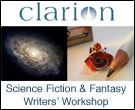



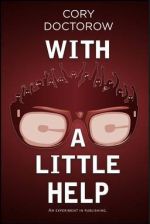
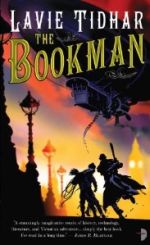
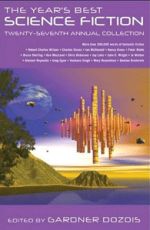


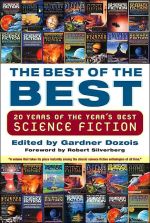
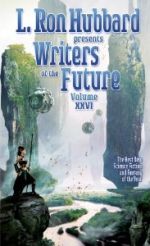

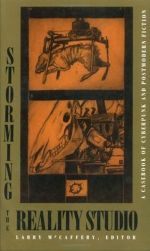



11 comments
[…] An Infallible System of Roulette by Christopher […]
[…] Miller’s An Infallible System of Roulette has been in our back pocket all year & we are pleased to finally bring this story to you. This […]
I wonder if there’s a universe in which this story didn’t leave my jaw broken from dropping to the floor.
Amazing.
Like riding a faster and faster spinning merry-go-round as a kid, Mr. Miller’s story challenges the reader to just let go. Brilliant read.
I don’t think I’ve ever seen the many-worlds interpretation of quantum mechanics (always a popular topic in SF it seems) evoked this skillfully, poetically, and beautifully.
A really great story.
Wow. Will have to read this again. And I think again. “Truth is defined by what you believe, and not the other way around.” Absolutely.
Thank you Andy, Pete, Mike and Louise. I very much appreciate your generosity and support, here and over the years. Also want to thank Dave Wallace whose “good old neon” heavily inspired this story. Rest in Peace man.
Holy cow, great story, Chris! Love the voice and the fluidity of the prose! You covered a lot of territory here with skill and style…
Daniel! Thanks! And thanks for the reviewing it in your blog. All very much appreciated.
[…] “An Infallible System of Roulette” by Christopher Miller at Redstone […]
[…] “An Infallible System of Roulette” by Christopher Miller at Redstone Sci […]